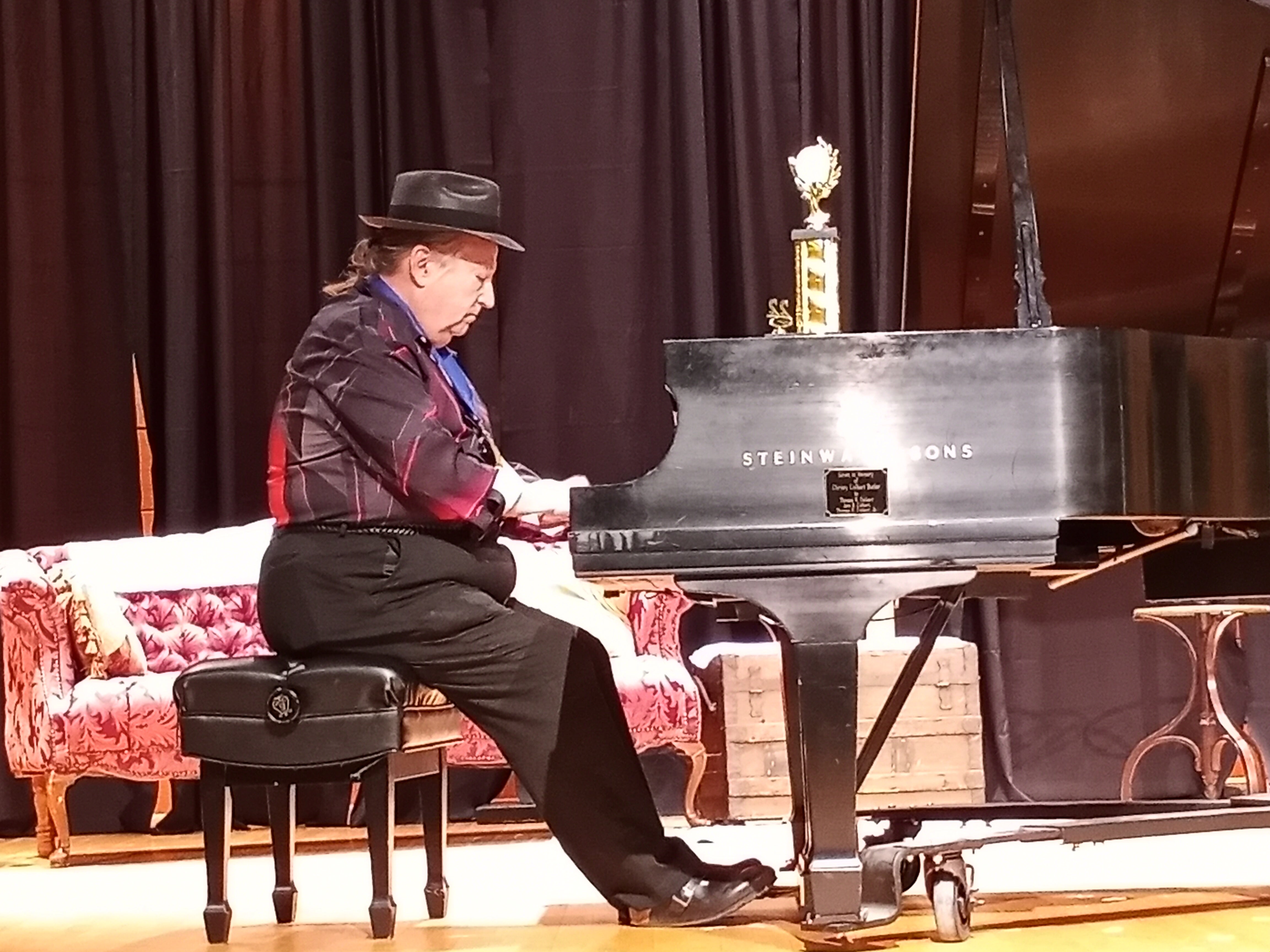Home of slain activist placed names as a historic place
Published 9:39 am Wednesday, July 12, 2017
By Billy Watkins
The Clarion-Ledger
NATCHEZ (AP) — Imagine you are 8 years old and the biggest concern you have is fixing your bicycle.
Imagine you hear an explosion, right at supper time, that rumbles the ground of your front yard, rattles the chain on your bicycle. You jump on your bike, wobbly but rideable, and head toward the loudest boom you’ve ever heard.
Imagine three blocks later rounding a corner and seeing a smoldering truck in pieces and your father lying in the street, dead at 36.
“That’s something no 8-year-old should ever have to look at,” says Wharlest Jackson Jr. now 59, his voice choking with emotion.
Wharlest Jackson Sr., a husband, and father of five who worked three jobs so his wife, Exerlena, could stay home with the children, was killed in February 1967 by a bomb planted beneath his 1958 Chevrolet pickup and aligned with the driver’s seat. He was treasurer of the NAACP, and his involvement with voter registration, among other things, had angered local white supremacists.
No one was ever charged with the crime.
“The family never received any sort of closure,” says Natchez Mayor Darryl Grennell.
This will help: The home of Wharlest and Exerlena Jackson, located at 9 Mathew St. in one of the city’s oldest African-American neighborhoods, has been placed on the National Register of Historic Places.
The house was submitted for approval by the Department of Archives and History through its National Register Review Board. The U.S. Department of Interior had the final say.
“I’m shocked that it came to fruition,” says Denise Ford, the Jacksons’ daughter who remains in Natchez. “It helps me know that my father’s death was not in vain, that he will be remembered.”
Says Grennell: “This is important for Natchez, it’s important for Mississippi and our country. We should never forget these bombings and the toll they took on the family and the city because we never want these things to happen again.”
Yes, bombings. Plural.
Two years earlier, local NAACP official George Metcalfe suffered serious injuries when his vehicle exploded. Just two weeks earlier, he had presented the city school board with a petition supporting desegregation.
Jackson led protests, demanding law enforcement find and arrest those responsible for Metcalfe’s injuries. No one was charged in that bombing, either.
Wharlest Jr. says his dad wasn’t a troublemaker.
“He simply knew the constitutional rights that had been given to all Americans,” he says. “And he was willing to lay his life on the line to help the black people of Natchez enjoy those rights. It takes a brave, courageous man to do that.”
Jackson stood only 5 feet, 5 inches tall. “But he had the heart of a lion,” Wharlest Jr. says.
He was born in Deleon, Florida, where his father farmed oranges and watermelons. “I don’t think he ever wanted to stay there,” Denise says.
Jackson served in the Army during the Korean War. He met and eventually married Exerlena in Chicago in 1954. The couple decided to move to her hometown — Natchez.
“My dad was a jack of all trades,” Denise says.
He worked at Holsum Bakery, drove a pulpwood truck, cut men’s hair, worked at a funeral home.
“He was my everything,” Denise says. “When my mom became sick for a while, he tried to take over her role and cook for us.”
She chuckles. “He wasn’t no cook. He made spaghetti and had all that black pepper in there. He would tell us to eat up. We tried.”
“He was a father’s father,” Wharlest Jr. says. “By that I mean, he spent a lot of time with his family. He would take us on trips, often to Florida, every summer. He played jacks with us on the front porch. He’d take us riding around town. He just liked being with us.”
They kept it from the children, but the Jacksons knew the Ku Klux Klan was targeting him, especially after he sought and received a promotion at the local Armstrong Tire and Rubber plant.
The promotion added only a few dollars to his paycheck, and Exerlena begged him to turn it down. But he viewed it as a promotion for all blacks, plus every dollar was important with five children to feed.
He was killed about a month later. When Exerlena heard the explosion, she knew what had happened.
“She always called my father by his last name,” says Denise, who was 10 at the time. “She yelled ‘Jackson! Jackson!’ My mother had great intuition. She always seemed to sense things.”
That wouldn’t be the last time the Jackson family suffered loss.
In 1978, the family drove to Itta Bena to watch Wharlest Jr., a linebacker, play his final football game for Mississippi Valley State.
On the way home, while cruising down U.S. 61, their car was struck from behind, knocking it into a concrete bridge. Their maternal grandmother, Sophia, was killed, along with two of the Jacksons’ daughters — Delresia and Doris. Trevis, Denise’s 2-year-old son, also died in the crash.
“I was in the vehicle ahead of them. I glanced in my rearview mirror and I told my mom ‘Doris isn’t behind us anymore,’ “ Denise recalls. “I did a U-turn. By the time I got there, a police car, an ambulance and a highway patrolman were already there.”
The vehicle that struck them was gone and never found.
“I’ve heard so many stories, I don’t know what to believe happened,” Wharlest Jr. says.
Following their sister Debra’s death in January, Wharlest Jr. and Denise are the only surviving children, therefore the owners of their parents’ U-shaped, white framed home that was built in the 1950s. Wharlest Jr. lives in it.
“God is in control of everything,” Denise says. “Without Jesus Christ, I would be bitter and angry. I’ve had to let that go. I’ve had to learn to forgive.”
“I’m still learning about forgiveness,” Wharlest Jr. admits. “It’s sort of like peeling the layers of an onion or shucks of corn. You’ve got to take a bit off at a time before you really get down to it. God instructed me to begin this journey, and I have.”





